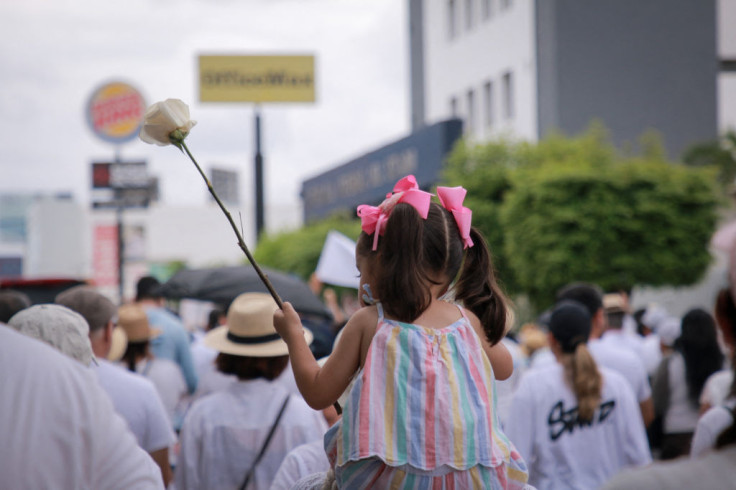
Residents of Culiacán, the capital city of the state of Sinaloa, have long been accustomed to the presence of cartels in the area. But for the past month, constant clashes between the two factions vying for control of the turf have taken violence to unprecedented levels.
Since "Los Chapitos" and "La Mayiza" formally began their war on Sept. 9, hundreds of people have been killed and gone missing in the area, with clashes even spilling over to other states. And according to a recent report, cellphone chats can become death sentences as clashes escalate.
According to a CBS News report, cartel gunmen are now stopping young people on the street and demanding to see their cellphones. If they find a contact who is a member of a rival faction, a chat with a wrong word or even a photo with the wrong person, they can proceed to kill or kidnap the owner of the device.
Cartel members then go after everyone on that person's contact list, forming a potential chain for kidnappings and murders.
According to Juan Carlos Ayala, an academic who studies the anthropology of the drug trade at the Autonomous University of Sinaloa, the arrests of Joaquín "El Chapo" Guzmán and Ismael "El Mayo" Zambada, have opened way for a new generation of younger, flashier and more violent drug lords.
"They see that the tactic of shootouts hasn't worked for them, so they go for kidnapping," Ayala said. "They catch one person, and if he has messages from the rival group...they go after him to squeeze more information, and that starts a chain of hunting, to catch the enemy," he added.
That was the case for the son of a local news photographer. The 20-year-old was allegedly stopped with other two young men by cartel members who then searched their phones and proceeded to kidnap them. The photographers son was released a few days later but the other two young men have not been seen since.
"You can't go out for five minutes, ... not even during the daylight," said Ismael Bojórquez, a veteran journalist in Culiacan. "Why? Because the narcos have set up roadblocks and they stop you and search through your cellphone."
The State Council on Public Safety, a civic group, estimates that over the past month,there has been an average of six killings and seven disappearances or kidnappings in and around Culiacán every day.
The ongoing violence has also affected Culiacán's economy. Laura Guzmán, the leader of the local restaurant chamber, said about 180 businesses in the city have closed, permanently or temporarily, since Sept. 9 and almost 2,000 jobs have been lost.
"Young people are not interested in going out right now," Guzmán said.
In response, the Mexican government has sent additional troops to Sinaloa as part of an ongoing effort to address the violence stemming from the cartel wars raging in the state of Sinaloa.
Last week, the Claudia Sheinbaum administration sent 100 special force members to Culiacán to "provide support to personnel and the deployment that three levels of government have in the municipality of Sinaloa."
The deployment takes place days after Sheinbaum introduced a task force as part of her plan to address cartel violence. Called "Fuerza de Tarea," she said it will focus on protecting civilians and offering quick responses when a situation arises. One of the main concerns for those deployed during the operation also includes locating those who have gone missing in recent weeks.
© 2025 Latin Times. All rights reserved. Do not reproduce without permission.







